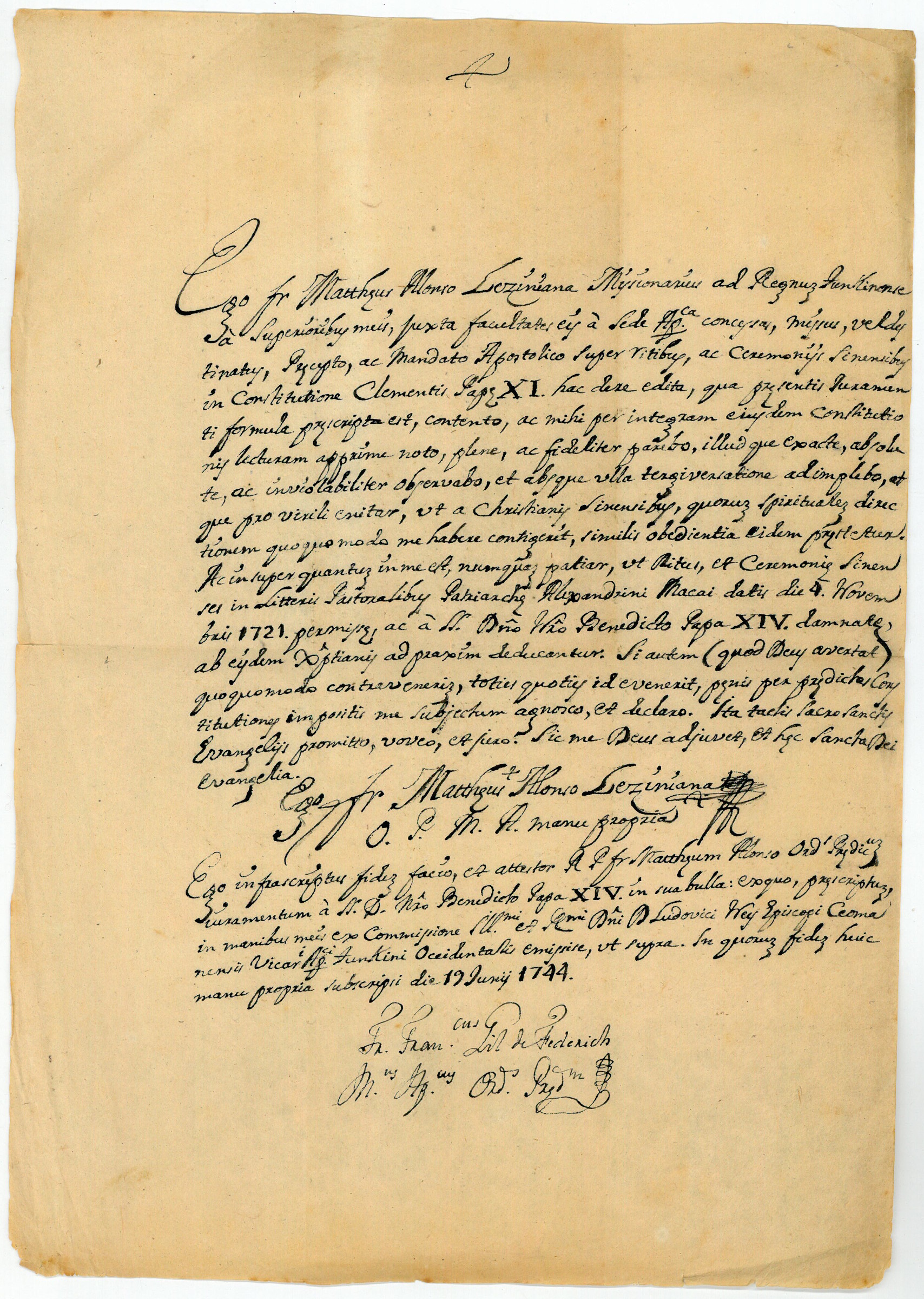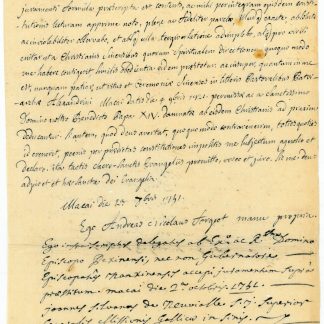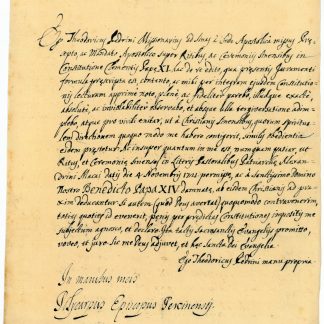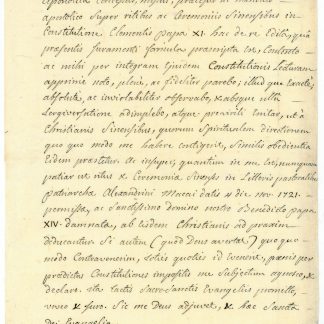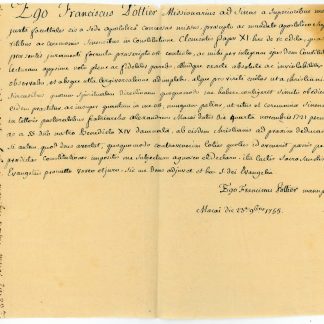Autograph document signed. Co-signed by Saint Francesco Gil de Frederich y Sans.
Folio. 1 p. With 5 autograph lines by Francesco Gil de Frederich y Sans. In Latin.
€ 3,500.00
An oath renouncing the practice of the Chinese rites, taken by the Dominican missionary as required by the Papal Bull "Ex Quo Singulari" (1742). The oath was sworn on the Bible, and a signed autograph ("manu propria") of the formula had to be produced as evidence. Most of these documents are co-signed by church officials or superior friars as witnesses to an oath sworn in their presence ("in manibus meis"), in this case the fellow Dominican prisoner, who signed by authority of the Vicar Apostolic of Western Tonkin, bishop Louis Néez.
Born in Nava del Rey, Valladolid, Mateo Alonso de Leciniana entered the Dominican convent of Santa Cruz de Segovia in 1723 and was sent to Manila in 1729, where he taught at the Colegio de San Tomas. In 1732, Liciniana was allowed to join the Dominican missions in Vietnam. Despite the severe persecution of Christians, he successfully evangelized for several years until late November 1743, when he was denounced by an apostate and eventually captured in a cave and brought to Hanoi. There, Liciniana joined Francesco Gil de Frederich y Sans, who had been imprisoned since 1737. Throughout their imprisonment they enjoyed some very limited freedom of movement and could even covertly continue their missionary work, but were also subjected to torture and harsh treatment during several trials. The document at hand is a beautiful testimony to the plight of the two Dominicans and the unbroken commitment to their mission. Liciniana's death sentence was originally commuted to life in prison due to the intervention of a sympathetic mandarin, but he asked to be retried in order to share the fate of his Dominican brother. They were exectued on 22 January 1745. Pope Pius X beatified the two martyrs in 1906 and in 1988, they were canonized together with over 100 Vietnamese Martyrs by Pope John Paul II.
During the early years of their mission to East Asia, the Jesuits led by Matteo Ricci accommodated Catholicism to Chinese customs and Confucian practice in important ways, both for political reasons and in the hope of attracting more converts. Criticism of this syncretism is as old as the Chinese rites themselves, and Ricci's direct successor Niccolò Longobardo attempted to change course, which led to his replacement as provincial. When Dominican and Franciscan missionaries entered China, they reported to Rome critically on the Jesuit practices. A first condemnation was decreed by Pope Clement XI in 1704 and confirmed in the 1715 Bull "Ex Illa Die". In "Ex Quo Singulari", Pope Benedict XIV re-affirmed "Ex Illa Die" and required all missionaries in East and South-East Asia to take the oath renouncing the practice of Chinese rites and similar accommodations to local beliefs and religious practice.
With insignificant tears and creases.

